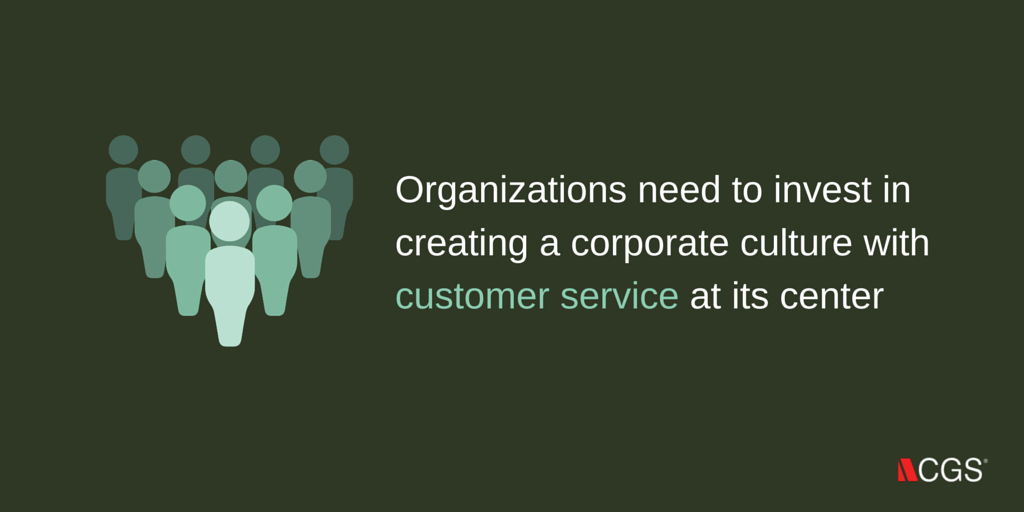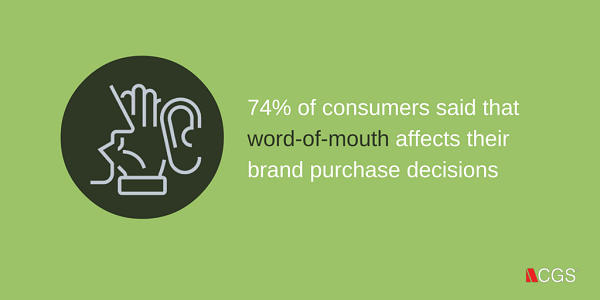Topics
Making an Impression: How to Create Memorable Customer Experiences

If your organization's customer experience strategy doesn't help you build memorable interactions, your clients might not return with their business. Or at least that's what CustomerThink contributor and CEO of Beyond Philosophy Colin Shaw asserted in a recent blog post. Shaw explained that memory plays a large role in customer retention: When consumers or companies remember your brand and the experience that it offers across every channel, they're more apt to return.
Of course, that concept only applies if the experiences they have are positive ones. Suffice it to say that less-satisfying interactions will push those individuals away from your organization.
So, what exactly makes an experience memorable? Here are some ways that you can create good customer experiences, avoid bad memories and put a rest to just plain forgettable interactions.
THE GOOD
When it comes to providing customers with a memorable experience that's positive, there are a few rules that every organization's customer service representatives should follow:
"'Caring interactions' are a result of listening before acting."
Demonstrate a willingness to care: Customer service and tech support professionals must always convey to clients that they care about the individuals that they're serving as well as the outcome of that interaction. In other words, representatives should emotionally align themselves with customers, and then strive to satisfy that person by the end of a support case. On her blog, Kate Nasser wrote that "caring interactions" are a result of listening before acting. That said, Nasser pointed out that your representatives won't offer a memorable customer experience unless they're trained to care and held accountable for that responsibility.
Exceed expectations: To ensure your customers remember how well their interactions went with your company, you need to go above and beyond their expectations. Shep Hyken explained that customer service strategies should focus on "going the extra mile." That way, clients will feel as though their business matters.
Don't just take care of the customer. Help the customer. pic.twitter.com/sRgxsWYem0
— Shep Hyken (@Hyken) April 28, 2016
To truly exceed what's expected of your brand, you need to set a bar. Many experts recommend keeping those expectations relatively low, so you can really blow them out of the water. For example, never promise that you can always answer calls within 30 seconds if you cannot consistently do so - instead, say you'll help in under two minutes, and then when you answer in less than one minute, they'll be very pleased with such a short wait.
What clients remember isn't what expectations you've set, but how effective you were at meeting those expectations. Jayson Demers, Founder and CEO of AudienceBloom
Keep it simple: This Navy mantra - sans insult - is just as relevant in customer service as it is for military purposes. After all, over-complicating matters is a one-way ticket to a bad experience. Steve Curtin suggested making customer service interactions as easy as possible, pointing to Uber as a great example of a brand that does experience right. Simply put, your organization must make it intuitive to find help or report a problem, and the best way to do that is with a contact center that does it all, from Web chat to phone support.
THE BAD
It's very difficult to forget when a brand treats you poorly. So don't give your customers a reason to remember you in a negative light. That entails avoiding the following:
Taking too long: Timing is everything, right? Don't waste your clients' time. To mitigate the chance of doing so, ensure that you can provide a seamless experience across channels that doesn't require customers to reenter information or retell their problem to multiple representatives.
Missing the "how": Shaw explained that too often companies focus their customer service attention on solving the "what." For example, what are customers trying to do? Or what solutions can help my organization improve its customer experience strategy? Instead, Shaw argued, you need to focus on the "how" - how will my representatives address the whats? Or how will an outsourced contact center boost response times? You might know what you want to do, but you need to pay attention to how you do it.

Skimping on culture: In order to care about customers, exceed their expectations and keep it simple, your organization needs to invest in creating a corporate culture with customer service at the center. By getting your contact center representatives excited to help clients, you can ensure that everyone feels responsible for the negative - and the positive - interactions. To begin developing a consumer-first culture, start an incentive program that enforces positive outcomes with rewards.
Forgettable interactions prevent corporate growth.
THE UNDERWHELMING
Bad experiences are sure to lead to lost business - U.S. businesses lose $84 billion annually because of them, according to Desk. And forgettable interactions are just as likely to stunt growth - disloyalty causes organization growth to drop 25 to 50 percent, CityGro cited. If your customers aren't wowed by how well you treat them, you won't stand out the next time they're in the market for your product or when asked for a recommendation. That's not good considering 74 percent of consumers said word-of-mouth affects their purchase decisions, the Ambassador blog reported.

How can you prevent offering a forgettable experience? You need to innovate if you want to become a mainstay. You need to pull an Apple, an Uber or a Tesla, and reinvent yourself in your market by not only following best practices but by creating a new standard. Even if you slip up here and there, your customers will love that you cared enough to take a risk.
A memorable customer experience is how you set your organization apart from the competition. Just ensure that you're being remembered positively by your customers.

